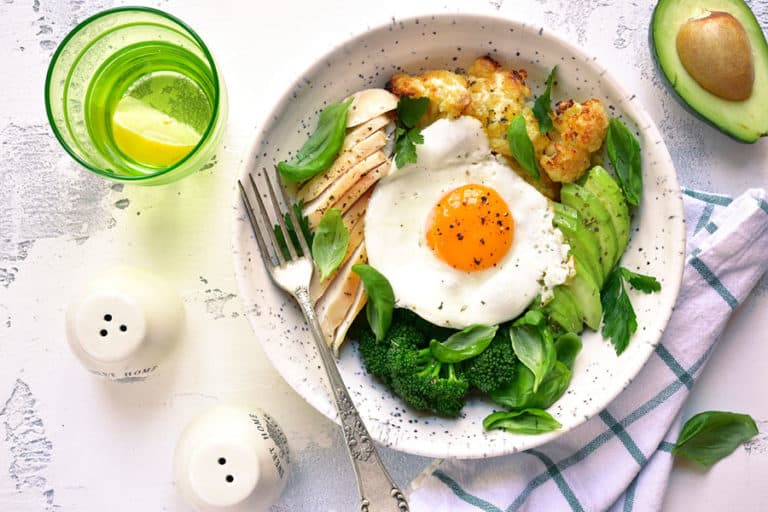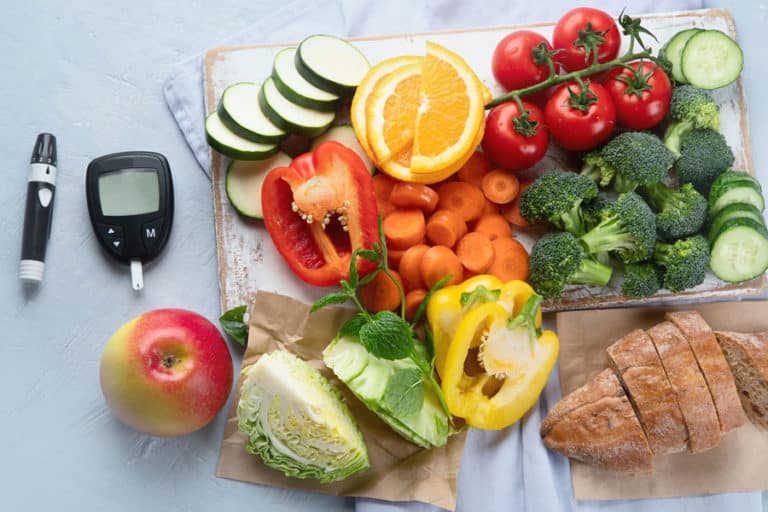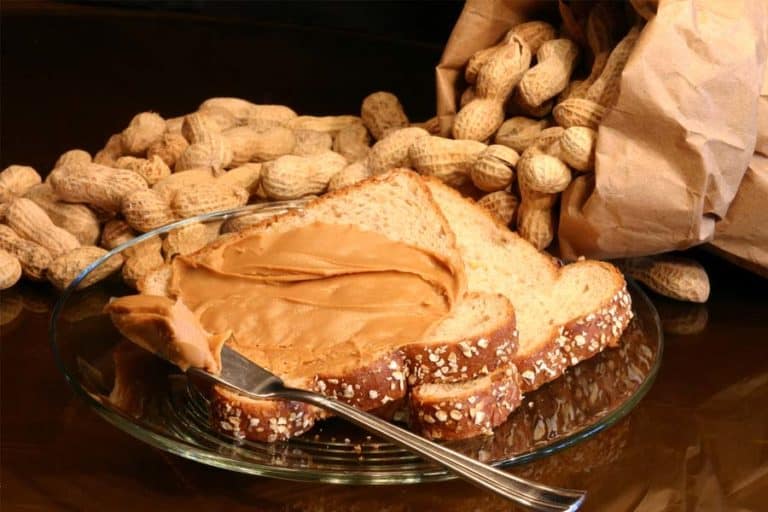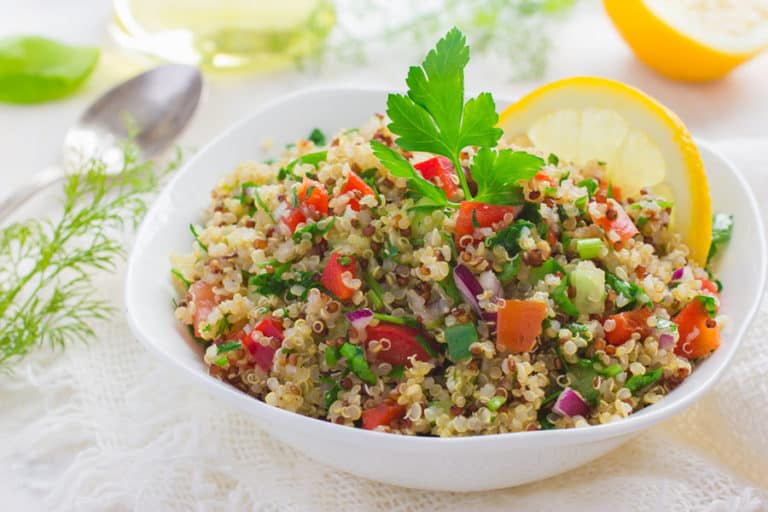Best Vegan Calcium Sources For Optimum Bone Health
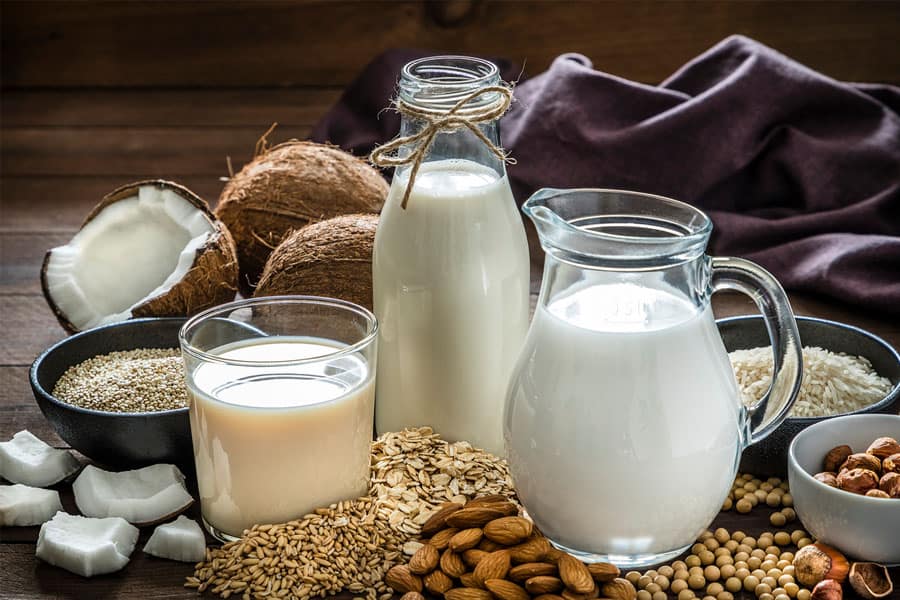
Vegan Calcium Sources | Importance | Calcium and vegan diet | Tips | Supplements
Calcium is an essential mineral for the healthy functioning of the human body. Lack of calcium increases the risk of osteoporosis and other bone-related diseases.
Vegans need to be especially mindful of their calcium intake since they are often at risk for calcium deficiency.
While getting enough calcium from a vegan diet is possible, it can be challenging to ensure you get all the nutrients you need in the right amounts. To ensure optimum bone health, here are some of the best vegan calcium sources:
Best vegan calcium sources
Calcium can be found in a variety of whole foods. Some contain significantly more calcium than others.
Animal products such as cow’s milk, yogurt, sardines, and canned salmon with bones have high calcium levels.
However, many plant-based foods also offer high calcium content. Here are some calcium-rich vegan foods:
1. Nuts
Nuts, such as almonds, contain a range of minerals, including calcium. Just one ounce (28g) of almonds contains around 74mg calcium.
2. Seeds
Seeds such as chia, sesame, and sunflower are a great and easy way to get more calcium into your diet.
- 1 tbsp sesame seeds =17mg
- 1 tbsp chia seeds =72mg
- 1 tbsp sunflower seeds =20mg
3. Plant milks
Plant milks are a great source of calcium for vegans. They also contain other essential nutrients, such as vitamin D and B12, which can be harder to get from a vegan diet.
Most calcium-fortified plant milk, such as soy milk and almond milk, contain around 300-500mg of calcium per 1 cup, which is equivalent to the calcium content in cow’s milk.
4. Green vegetables
Dark leafy greens such as kale, spinach, bok choy, turnip greens, and collard greens are packed with a variety of minerals, including calcium. One cup (180g) of cooked spinach contains around 209mg calcium.
Vegetables like okra, broccoli, and butternut squash are also rich sources of calcium. For instance, 100g of steamed broccoli will have 47mg of calcium.
5. Tofu and tempeh
Tofu and tempeh are made from soybeans. Soybeans [1]PubMed: Soy: a complete source of protein contain a good amount of calcium and all nine essential amino acids (complete proteins). A block of tofu (122g) contains around 421mg of calcium.
6. Beans and legumes
Legumes and beans are great sources of calcium and can be used in many vegan dishes. White beans/navy beans, kidney beans, and chickpeas are all rich sources of calcium.
A cup of white beans can provide up to 162mg of calcium, whereas 1 cup of chickpeas has 88mg of calcium.
7. Molasses
Molasses is a mineral-rich sweetener made from sugar cane or sugar beets. One tablespoon (20g) has 41mg of calcium.
8. Calcium-fortified foods
Many grains and cereals are fortified with calcium. Check the packaging to see how much calcium is in each serving.
9. Fortified breakfast cereals
Many brands of breakfast cereal are fortified with calcium. Check the label to see how much calcium is in each serving.
10. Fortified orange juice
Some brands of orange juice are fortified with calcium. 240 ml of fortified orange juice can provide up to 300mg of calcium.
Foods that negatively affect bone health
Excess consumption of foods like coffee, tea, alcohol, [2]PubMed: Factors associated with appendicular bone mass in older women. The Study of Osteoporotic Fractures Research Group and soda can interfere with the body’s ability to absorb calcium.
Calcium and the vegan diet
Calcium is found in abundance in most dairy products, so it can be difficult for vegans to get enough calcium in their diet. Many people can only absorb a limited amount of calcium from their diet, typically between 15 and 45 percent. This number may be slightly higher for vegans consuming calcium-rich foods.
Here are some challenges vegans face when trying to consume enough calcium in their diet:
1. Intake and Absorption Challenge
There is an inverse relationship between calcium intake and absorption. In other words, the less calcium you eat, the more of it your body will absorb.
For example, when people consume 200mg/day of calcium, their bodies only absorb about 45% of it. However, when they consume 2,000mg/day or more of calcium, their bodies only absorb 15%.
2. Dietary challenges to calcium absorption
The vegan diet poses specific dietary challenges to the absorption of calcium in the body. Here’s the list of three major challenges that vegans may face in terms of the absorption of calcium:
- Protein
Vegans are often at risk of protein deficiency, since proteins are most easily found in animal-sourced foods.
Nevertheless, vegans still need optimum amounts of protein for calcium absorption. Studies show protein supplements significantly reduce bone loss [3]PubMed: Interaction of dietary calcium and protein in bone health in humans in elderly hip-fracture patients.
Many vegan foods are alkaline [4]PubMed: Excess dietary protein can adversely affect bone in nature (certain fruits and vegetables). This may increase the body’s acid load and can reduce calcium absorption.
Thus, it is important to maintain a balance between good quality protein from vegan sources and calcium intake.
- Phytates and oxalates
Foods high in phytates and oxalates (anti-nutrients) can bind with calcium and prevent absorption of this mineral. Phytates are found in whole grains, legumes, and some nuts, while oxalates are also found in certain leafy greens.
However, many antinutrients are antioxidants [5]Harvard T.H. Chan: Are Anti-Nutrients Harmful? and have anti-cancer properties; hence, it is not appropriate to avoid them completely.
- Vitamin D
Vitamin D is essential for calcium absorption and bone health. Therefore, it is important to include vitamin D in a vegan diet. Vitamin D can be found in fortified plant-based foods or taken as a supplement. Thus the National Osteoporosis Foundation (NOF) [6]National Osteoporosis Foundation: Vitamin D and Bone Health recommends an intake of 800 to 1000 international units (IU) of vitamin D3 per day for adults over age 50.
Note: It is best to consult your personal doctor or dietician before making any dietary changes.
Importance of calcium
Calcium is the most prevalent mineral in the human body. The bones store almost all of the calcium in the body (98%), and releasing this stored calcium helps maintain normal blood calcium levels.
Here is a chart of Recommended Daily Allowance (RDA) of calcium [7]National Institutes of Health: Calcium for adults according to age-
| Gender | Age | RDA |
| Male | 19-70 years | 1000mg |
| Female | 19-50 years | 1000mg |
| Female | 51-70 years | 1200mg |
| Pregnant women | 19-50 years | 1000mg |
| Breastfeeding women | 19-50 years | 1000mg |
| Male and female | 70+ years | 1200mg |
Calcium ions are needed not only for bone mineralization but also for the regulation of the heart rate and strength of contraction. It also regulates blood coagulation, contraction of skeletal muscle cells, and nerve impulse conduction.
Kids and Calcium
As children grow, calcium helps to develop their bones. After a person stops growing, calcium helps to maintain bone density and slow down the natural bone loss that occurs with aging.
Did you know?
Calcium is crucial for the growth, development, and maintenance of bone. The human body contains 99% of its calcium in the bones and teeth.
When we are infants and young children – times in our lives when we need lots of extra bone-building calcium – our bodies can absorb up to 60% percent of what we eat.
As adults, that number drops to 25%. And for seniors, it continues declining even further.
Women and Calcium
Women who have gone through menopause can lose bone density [8]Breast Cancer: Bone Strength After Menopause more quickly than males. According to studies, nearly half of women lose 10-20% of bone density [9]National Library of Medicine: Primary osteoporosis in postmenopausal women rapidly during the menopausal transition period.
The hormone estrogen is linked to the maintenance of bone health. The levels of estrogen (which helps maintain bone density) and other important hormones drop drastically during menopause. This leads to a greater chance of developing osteoporosis.
Therefore, it is important for everyone, especially women over 50, to ensure they are getting enough calcium and vitamin D in their diet.
In a person’s blood, the normal level of calcium is about 10mg/dL. [10]Oregon State University: 6.7 Calcium Homeostasis: Interactions of the Skeletal System and Other Organ Systems When the body fails to maintain this level, a person will experience hypo or hypercalcemia.
Tips to increase your calcium consumption and bone health
If you’re looking to increase your calcium intake and bone health, follow these tips:
- Eat low-oxalate foods more often than high-oxalate foods. Low-oxalate foods include broccoli, bok choy, kale, sunflower seeds, and kidney beans. Medium-oxalate foods include brussels sprouts, apricots, and turnips. High-oxalate foods include beet greens, spinach, and Swiss chard.
- Ensure adequate protein in your diet. Protein seems to have a protective effect on the bone matrix.
- Consider taking a vegan calcium supplement. This is a common way to ensure the body gets and keeps what it needs to function properly.
- Make sure you’re getting enough vitamin D.
- Purchase tofu that is prepared with calcium sulfate, as it may contain more calcium than tofu made with nigari.
Vegan calcium supplementation
Apart from dietary sources, vegan supplements can be a great way to get your daily dose of calcium on a vegan diet. Supplements are also essential if you do not eat an adequate amount of vegan calcium-rich foods.
- Take into account that multivitamins also contain calcium when you are adding up your total daily intake.
- Always check the supplement label for the word “elemental” when trying to find out how much calcium it contains. If you’re unsure about anything, ask a pharmacist for help.
- If you’re taking calcium carbonate, make sure to do so with food. All other types of calcium can be taken anytime, whether you’ve eaten recently or not.
- To ensure optimal absorption, no more than 500mg [11]Cleveland Clinic: Osteoporosis: Prevention With Calcium Treatment of calcium should be taken at one time.
Conclusion
Vegans need to be aware of their dietary choices in order to meet their daily calcium needs. Although vegan diets can provide adequate amounts of calcium, certain antinutrients such as phytates and oxalates can reduce the absorption of this mineral.
Vegans may consider taking vegan calcium supplements, if necessary, under the guidance of their personal nutritionist. With careful planning and consideration, vegans can maintain strong bones.
References
| ↑1 | PubMed: Soy: a complete source of protein |
|---|---|
| ↑2 | PubMed: Factors associated with appendicular bone mass in older women. The Study of Osteoporotic Fractures Research Group |
| ↑3 | PubMed: Interaction of dietary calcium and protein in bone health in humans |
| ↑4 | PubMed: Excess dietary protein can adversely affect bone |
| ↑5 | Harvard T.H. Chan: Are Anti-Nutrients Harmful? |
| ↑6 | National Osteoporosis Foundation: Vitamin D and Bone Health |
| ↑7 | National Institutes of Health: Calcium |
| ↑8 | Breast Cancer: Bone Strength After Menopause |
| ↑9 | National Library of Medicine: Primary osteoporosis in postmenopausal women |
| ↑10 | Oregon State University: 6.7 Calcium Homeostasis: Interactions of the Skeletal System and Other Organ Systems |
| ↑11 | Cleveland Clinic: Osteoporosis: Prevention With Calcium Treatment |




